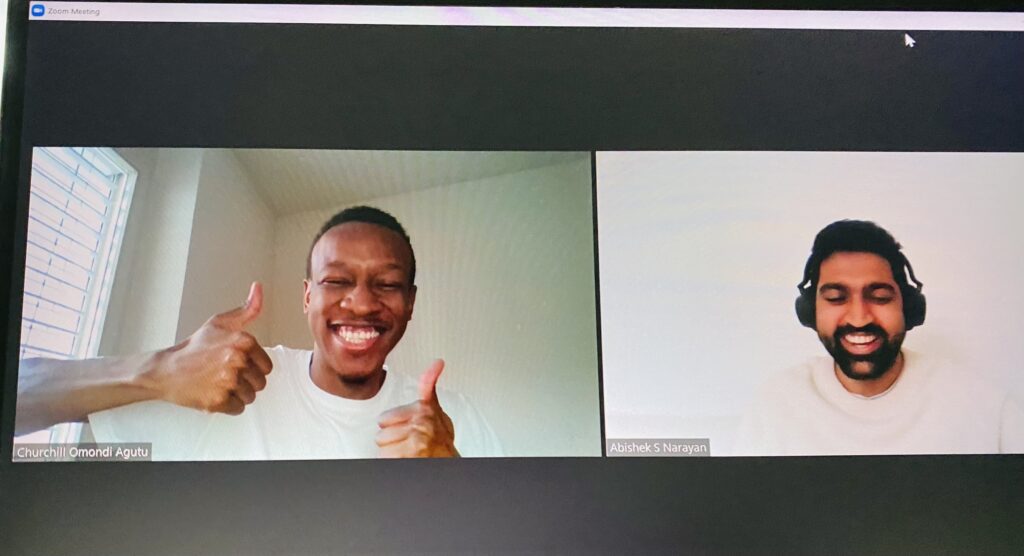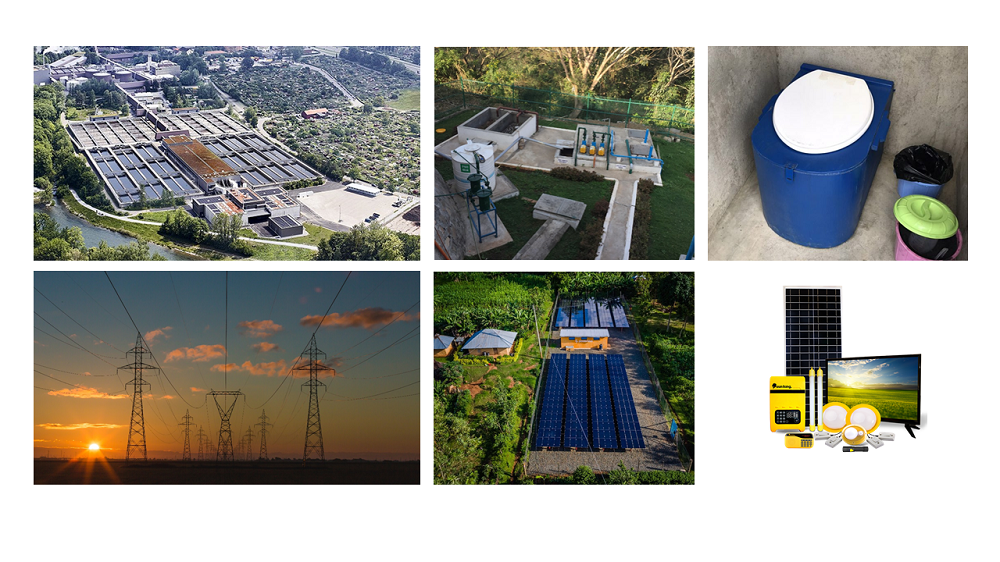by Abishek S. Narayan & Churchill Agutu, PhD students, 21 January 2021
Admit it, 2020 was a rather interesting year… Between short winter days and long summer ones, we cozied at home on our desks trying to get some work done, had frequent coffee breaks and Zoomed with every person we have known since we turned 5. We can really say that we have built a virtual network whilst being siloed at home. As ETH ambassadors, we previously frequented new countries bringing back new experiences and stories from our travels and research. Now, we have had to (for the most part) remain grounded. However, some of us discovered virtual experiences that have influenced and broadened our own views on our research to date. One such virtual experience is how we discovered synergies between sanitation and electrification during the virtual ETH4D Research Seminar held in November 2020. This annual seminar is intended to contribute to ETH4D’s goal of bringing together researchers from various departments of ETH working towards solving complex development challenges. One important aspect of this goal is building a network of Doctoral researchers through connecting scholars working in development research, and providing them with a platform to share insights and knowledge in their research.
It is through this 2-day colloquium that we came across each other’s research work in the Water, and Sanitation (WASH) and electricity sectors in developing countries, and discovered many similarities and potential scope for cross-learnings between the Sustainable Development Goals (SDGs 6 and 7 respectively). We decided to continue the conversation on Zoom to explore what we could learn about each other’s research. The conversations got us both excited, as you can see in the unintended White-coded Bruce Almighty Zoom call!

For context, energy access and access to sanitation remain key drivers to ensuring that the SDGs are reached. The United Nations has set a target to “ensure universal access to affordable, reliable and modern energy services” by 2030, and has also set a goal in water and sanitation to “achieve access to adequate and equitable sanitation and hygiene for all and end open defecation,” by 2030. The scale of the challenge across both sectors is immense! Currently over 4.5 billion people globally lack safely managed sanitation and over 2 billion, mostly in sub-Saharan Africa and South Asia, do not have access to functional toilets and handwashing facilities. It is also estimated that ca. 789 million people lack access to household electricity globally, with a significant portion of the un-electrified population residing in sub-Saharan Africa.
The basis of our conversation came from our realization during the seminar that the current thinking around approaches to electrification and sanitation are very similar. In fact, we realized that there are 3 approaches to provision of electrification and sanitation services, which are to a large extent serviced in the same ways for the same reasons: a centralized approach, a decentralized community-based approach, and a decentralized on-site/standalone approach. These can also be simply understood as centralized/on-grid, decentralized small/ mini-grid and standalone systems respectively. The picture below helps to visualize this.

(photo credits: Top row (far left: EAWAG.ch, middle: Abhishek Narayan, far right: CDC.gov); Bottom row (far left: no attribution (unsplash.com), middle: https://weetracker.com/2019/07/22/kenyas-microgrid-impact-electricity-access/, far right: www. greenplanet.com))
Even more interesting were the similarities in the current trajectory of the sectors. We learnt that both sectors in developing countries are now focusing on involvement of private players, developing innovative financial mechanisms, establishing effective policies to accelerate deployment and scaling of technology. We concluded from our discussion that one area in which the sanitation sector can take a cue from the electricity sector is to consider opportunities to piggy-back on the off-grid electricity sector’s aim to scale. Since mini-grids are working to develop business models that can enable them to generate revenues, part of this involves accelerating deployment of both through finding demand anchors. Conversely, one aspect where the energy sector can get inspired from sanitation is the Human Right based approach that the latter has taken.
Our virtual experience is just one illustration of how we can think about breaking silos through more conversations outside of our own disciplines. It enables cross-pollination of ideas and opens new doors for not just learning, but also potentially joining forces in designing development interventions and bettering the lives of people. The most exciting part is that we can find opportunities to share insights while sitting at our desks, in the comfort of our own home offices, as opposed to travelling across the world to meet with someone – which must surely be one of the few advantages of lockdown!
Links
For more info on ETH4Development, visit www.eth4d.ethz.ch
For more info on Abishek’s sanitation project: www.sandec.ch/cwis
For more info on Churchill’s electrification project: https://eth4d.ethz.ch/funding-opportunities/E4D-Scholarships/e4d-doctoral-scholarships/e4d-fellow–churchill-agutu.html
Twitter: @abishek_water @omondi_agutu
About our authors

Abishek S Narayan is a PhD researcher on Planning Water and Sanitation for Development at ETH Zurich and Eawag. He also coordinates the Swiss Water Partnership Youth.

Churchill Agutu is a doctoral candidate carrying out research with the Energy Politics Group, supported by ETH Zurich’s Engineering for Development (E4D) Scholar-ship. His research interests are in energy access policy in Sub-Saharan Africa with a focus on the provision of electricity-based energy services in Rwanda. He is particularly interested the provision of these energy services in the off-grid sector.
